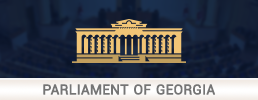2019-12-11
Next year, the Human Rights Council under the Prime Minister's chairmanship will have a renewed structure to work in four priority direction, with gender equality, children's rights, antidiscrimination policy implementation, and the rights of persons with disabilities as the key priorities.
Today's presentation of the renewed structure of the Prime Minister's Human Rights Council was held at the Ceremonial Palace of Georgia, to celebrate International Human Rights Day.
Attended by representatives of the Georgian Government, Parliament, civil society, and international organizations, the event was opened by the Head of the Government Administration.
Natia Mezvrishvili emphasized the lack of coordination between the Ministries in taking steps toward the protection of human rights, also pointing out that the new structure of the Human Rights Council will focus, above all else, on stronger coordination.
"The Human Rights Council will be a Government-level policy-making and interagency coordinating mechanism, meaning the Ministries above all else. This mechanism will ensure a high level of representation, a problematic issue in the past, and decision-makers, the Ministers, will come to the table to solve important human rights issues with a high level of representation. Most importantly, it will be a result-oriented mechanism," Natia Mezvrishvili stated.
According to the Head of the Government Administration, despite a frequent difference of opinion on issues of special importance, the Council's work will engage nongovernmental and international organizations.
"To me, it is of critical importance to ensure everyone's engagement in these processes, be it a representative of an international organization, the civil sector, or the Office of the Public Defender-everyone working on human rights and having different takes on the challenges facing the Georgian Government in this direction," Natia Mezvrishvili emphasized.
The presentation of the renewed structure of the Human Rights Council was led by the Prime Minister's Human Rights and Gender Equality Advisor Lela Akiashvili.
"The renewed structure of the Human Rights Council draws on four new priorities to guide the work of the Human Rights Council in 2020. It also involves the launch of work on the new Human Rights Strategy and Action Plan. As for said four priority directions, these are gender equality and women's rights, children's rights, the rights of persons with disabilities, and antidiscrimination policy implementation. Cooperation with the civil sector on these four directions is of crucial importance to us, so that the Human Rights Council may put in place effective coordination among governmental institutions and with the civil sector and international organizations alike," Lela Akiashvili underlined.
The event's participants were also addressed by EU Ambassador to Georgia Carl Hartzell. The diplomat pointed out Georgia's progress in the area of human rights, and commended the creation of the State Inspector's Service and the Code of Children's Rights as important steps in this direction.
"We consider the Human Rights Council under the Prime Minister to be a key instrument and platform bringing together stakeholders and parties to keep the Government constantly updated by civil society and other parties. It is a great news, indeed. And I am looking forward to seeing the Council launch its work. The EU has always supported this direction, including the implementation of the Human Rights Strategy. And now we are expecting the implementation of a new strategy by the new Council, and we are stand ready to provide assistance for this direction," Carl Hartzell stated.
The event's participants were also addressed by Head of the Council of Europe Office in Georgia Cristian Urse, Head of the OHCHR Agency Vladimir Shkolnikov, and a UNDP representative.
The meeting was organized by the Administration of the Georgian Government, with financial assistance from the UNDP, OHCHR, and the Governments of Norway and Sweden.











